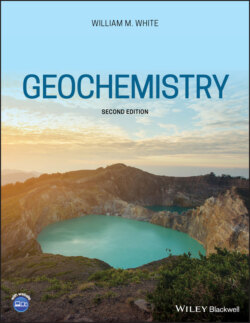Читать книгу Geochemistry - William M. White - Страница 14
1.4 THE PHILOSOPHY OF SCIENCE
ОглавлениеThis book will concentrate on communicating to you the body of knowledge we call geochemistry. Geochemistry is just part of a much larger field of human endeavor known as science. Science is certainly among humanity's greatest successes; without it, our current civilization would not be possible. Among other things, it would simply not be possible to feed, clothe, and shelter the 7 billion people living today. This phenomenal success is due in large part to the philosophy of science.
Science consists of two parts: the knowledge it encompasses and the approach or philosophy that achieves that knowledge. The goal of all science is to understand the world around us. The arts and humanities also seek understanding. Science differs from those fields as much by its approach and philosophy as by its body of knowledge.
This approach and philosophy unite the great diversity of fields that we collectively call science. When one compares the methods and tools of a high-energy physicist with those of a behavioral biologist, for example, it might at first seem that they have little in common. Among other things, their vocabularies are sufficiently different that each would have difficulty communicating his or her research to the other. In spite of this, they share at least two things. The first is a criterion of “understanding.” Both the physicist and the behavioral biologist attempt to explain their observations by the application of a set of rules, which, by comparison to the range of phenomena considered, are both few and simple. Both would agree that a phenomenon is understood if and only if the outcome of an experiment related to that phenomenon can be predicted beforehand by applying those rules to measured variables.† The physicist and biologist also share a common method of seeking understanding, often called the scientific method.
